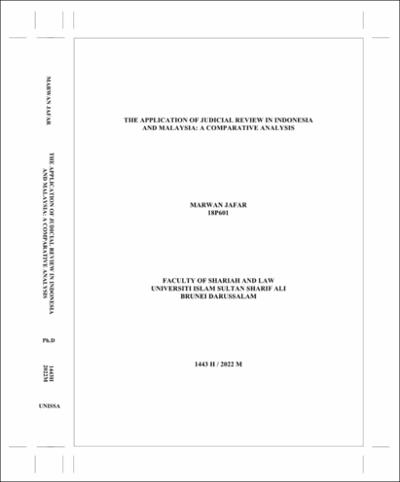| dc.description.abstract | Judicial review serves as one of the major backbones of the judicial system in any
democratic polity. It ensures the consolidation of democracy because it serves as the
principal mechanism of check-and-balance among the three tiers of government in any
democratic setting and protects the rights of any aggrieved citizen who is presumed to
have been unjustly prosecuted or governed. Given this, the present research focuses on
investigating the core ideas of judicial review and its procedures in Indonesia and
compares them to Malaysia’s judicial review model and procedures. Ultimately, the
present study comes up with a judicial review practice model from the comparative
analysis of the judicial review practices of Indonesia and Malaysia. A qualitative
research methodology was adopted, and comparative analysis using desktop research
design was conducted. It is found from the research that the dualistic judicial review
model is quite problematic in terms of application in the Indonesian context, and the
institution of the Judicial Ethics Commission (JEC) in Malaysia is likely to be effective
for judicial review execution. From the findings, the study suggests a review of the
current dualistic judicial review model adopted in Indonesia due to several flaws. The
study comes up with an integrated judicial review model based on the comparative
analysis of judicial review practices of both Indonesia and Malaysia. This research
contributes to the field of legal studies through the four mechanisms of judicial review
practice, i.e., judicial independence, easy access to justice, procedural fairness and
judicial transparency. It is believed that the integrated model of judicial review and the
four mechanisms for judicial review could serve as practical tools for enhanced judicial
review practices in Malaysia and Indonesia as well as other countries across the world. | en_US |


